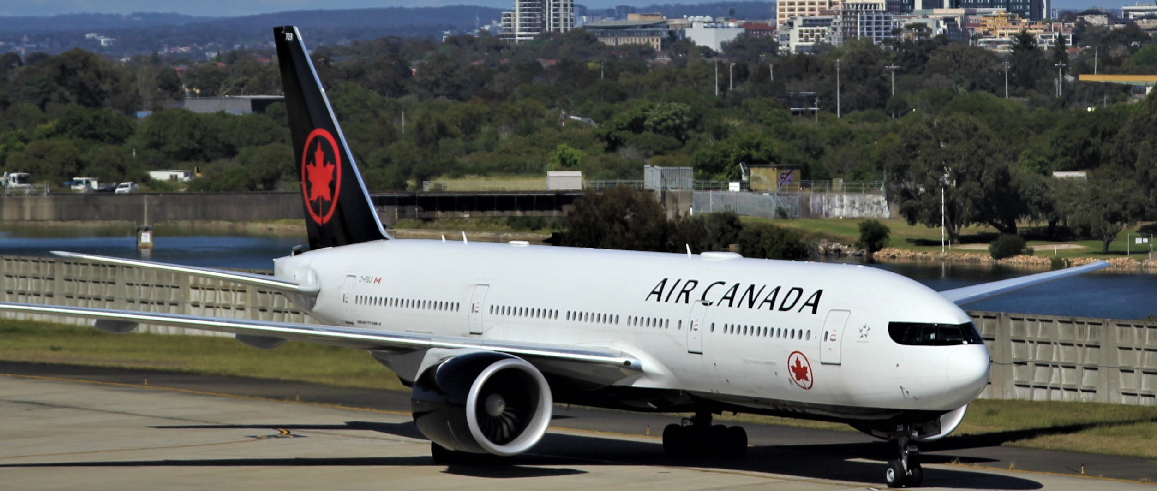Economic Mobility Pathways Pilot – EMPP Canada
The Economic Mobility Pathways Pilot (EMPP) was initiated in April 2018 by the government of Canada and has, since then, catered to helping skilled refugees and their families immigrate to Canada through existing economic immigration pathways.
If you have been looking for a way to immigrate to Canada through the economic immigration pathways, your search has finally paid off. Call us on +1 844 290 6312, or contact us online to speak freely with one of our legal and experienced advisors and to help with the immigration process.
Read our 1001 reviews
Request a call back from our immigration experts
Benefits of Choosing IAS‘ Canada Immigration Lawyers
When it comes to obtaining a Canada visa or permit, IAS Canada immigration lawyers are well-equipped to help you.
With IAS’ track record of successfully helping clients visit or immigrate to Canada successfully, we can help you achieve your goal.
Our dedicated immigration lawyers provide our services through a comprehensive and personalised approach. With IAS, you enjoy:

Compassionate support from an experienced immigration lawyer dedicated to your success



Support in gathering supporting documents and completing a high-quality application.



Confidence that your case is being handled by an experienced team.



In-house document checks done by lawyers who are well-versed in immigration matters.
Services we Provide
What is the Economic Mobility Pathways Pilot (EMPP)?
Canada has built a reputation for being one of the most welcoming countries in the world for immigrants and their families by providing various immigration programs. The Economic mobility pathways pilot is one such and combines refugee resettlement and economic immigration.
The EMPP was initiated as a small research project to help skilled refugees immigrate to Canada through existing economic programs and grants employers access to a pool of qualified candidates to fill job openings.
With some help, skilled refugees qualify for permanent residence through economic programs and support the Canadian labour market.
Who are Skilled Refugees?
A skilled refugee is a skilled person in need of international protection and has been identified to be at risk of persecution or serious harm in his/her own country.
Skilled refugees who meet the requirements of any of the economic immigration programs are assisted through some special considerations and immigrate to Canada to help their host communities, consequently meeting the Canadian labour market needs.


EMPP Canada requirements & Eligibility: Who can apply for the Economic Mobility Pathways Pilot?
To apply for the EMPP, applicants must meet primary requirements and the requirements of an economic immigration program.
Primary requirements for the EMPP
For applicants to be eligible for the EMPP, they must:
- Have been determined by the Canadian government to be a convention or country of asylum refugees.
- Possess one of the following documents:
- A valid, positive Refugee Status Determination (RSD) from the United Nations High Commissioner for Refugees (UNHCR) or a refugee-hosting state.
- A document that shows you’re a registered or recorded asylum seeker abroad.
- Have no durable solutions in a third country.
- Be outside Canada and their country of persecution.
- Be admissible to Canada i.e. not prohibited to enter Canada for any reason under Canadian immigration law.
Requirements for an Economic Immigration Program
Applicants must be eligible for one of the following economic immigration pathways:
- Atlantic Immigration Pilot Program.
- Provincial Nominee Program.
- Rural and Northern Immigration Pilot.


Atlantic Immigration Pilot & economic mobility pathways pilot: EMPP adjustments for AIP applicants
The Atlantic Immigration Pilot (AIP) allows skilled workers and international graduates who want to live and work in one of Canada’s four Atlantic provinces. These provinces are New Brunswick, Prince Edward Island, Newfoundland and Labrador, and Nova Scotia.
For skilled refugees applying to the EMPP via the AIP, the following adjustments have been made:
- Processing time is reduced from 12 months to six months.
- They do not need to prove their hours of work experience within the timeframes specified in the program. They only need to show they worked the same number of hours in general when applying.
- They can apply for a loan approved by the government of Canada to meet the settlement funds requirement of having enough money to support themselves and their family.
- They do not need to provide a police certificate, except requested.
- Biometric and application fees are fully waived.
However, these applicants must:
- Pay the Right of Permanent residence fee.
- Get a job offer that meets the program requirements from a designated Canadian employer. Designated employers are Canadian employers who have been approved to hire candidates under the Atlantic immigration program.
- In addition, the job offer must be endorsed by the province they plan to live in before they can complete their AIP permanent residence application.
In the document checklist, write “This item is not required as indicated on the EMPP checklist” in the space provided for proof of payment and police certificate.
EMPP candidates who wish to apply for the AIP program must visit the Ministry of Immigration, Refugees and Citizens Canada (IRCC) website and choose the immigration program they are eligible for.
Then, they must read the instruction guide (IMMI 0154), fill out all forms and include all required documents using the document checklist, and submit using the EMPP application instructions.
After applicants have completed the AIP application, they may then complete the EMPP application using the instruction guide (IMMI 0139). Applicants must submit both forms (AIP and EMPP) along with all required documents.
If the application is approved, principal applicants (and their family members, if applicable) will be issued:
- A visa for travel to Canada or a single journey travel document that will allow them to travel to Canada (if they don’t have a valid passport), and
- Confirmation of permanent residence (COPR).
Provincial Nominee Program: EMPP Canada pathway via PNP
This Provincial Nominee Program (PNP) allows workers or skilled refugees who possess the work experience, education, and skills required to contribute to the economy of a specific province or territory. They must also plan to live in that province and become permanent residents of Canada.
The following provinces and territories are participants in the Provincial nominee program:
- Manitoba.
- British Colombia.
- New Brunswick.
- Yukon.
- Ontario.
- Newfoundland and Labrador.
- Nova Scotia.
- Prince Edward Island.
To apply for the EMPP and consequently for permanent residence in Canada, applicants must first meet the requirements and receive the nomination of one of the participating provincial or territorial streams.
The following adjustments have been made for skilled refugees applying to the EMPP via the PNP:
- They do not need to provide a police certificate, except requested.
- They are exempt from paying application and biometric fees.
However, they must:
- Pay the Right of Permanent residence fee.
- Contact one of the participating provinces or territories for nomination after which they can apply to become permanent residents in Canada using the paper application process only.
Applicants must obtain the application package, via the IRCC website, to apply and read the instruction guide (IMMI P7000). In the document checklist, write “This item is not required as indicated on the EMPP checklist” in the space provided for proof of payment and police certificate.
After they have completed their application for the Provincial Nominee Program, they may then proceed to fill out their EMPP application. Applicants must submit both forms (PNP and EMPP) along with all required documents.
If the application is approved, principal applicants (and their family members, if applicable) will be issued:
- A visa for travel to Canada or a single journey travel document that will allow them to travel to Canada (if they don’t have a valid passport), and
- Confirmation of permanent residence (COPR).
Rural and Northern Immigration Pilot: Requirements and Document Checklist
The Rural and Northern Immigration Pilot (RNIP) is a community-driven program that creates a pathway for skilled refugees or foreign workers who want to work and live in one of the participating communities to become permanent residents.
The following adjustments have been made for skilled refugees applying to the EMPP via the RNIP:
- They do not need to prove they worked the number of hours asked for in the three years listed. They only need to show they worked the same number of hours in general before they apply.
- They can apply for a loan to meet the requirement of having enough money to support themselves and their family when they come to Canada (settlement funds).
- They do not need to provide a police certificate with their application except if requested.
- They are exempt from paying application and biometric fees.
However, they must:
- Pay the Right of Permanent Residence fee.
- Have a job in one of the participating communities.
- Apply for a recommendation from the community they plan to live and inform the community they are applying under the EMPP.
Applicants must obtain the application package, via the IRCC website, to apply and read the instruction guide (IMMI 0118). In the document checklist, write “This item is not required as indicated on the EMPP checklist” in the space provided for proof of payment and police certificate.
After they have completed their application for the Rural and Northern Immigration Pilot, they may then proceed to fill out their EMPP application. Applicants must submit both forms (RNIP and EMPP) along with all required documents.
If the application is approved, principal applicants (and their family members, if applicable) will be issued:
- A visa for travel to Canada or a single journey travel document that will allow them to travel to Canada (if they don’t have a valid passport), and
- Confirmation of permanent residence (COPR).


Phases of the Economic Mobility Pathways Pilot
The EMPP is currently in its second phase. The second phase was streamlined to address the challenges posed by the first phase.
The First Phase
In the first phase of the EMPP, six refugees and nine family members were able to access economic immigration to Canada through existing economic programs. To date, applicants have applied through the AIP or PNP only.
Although there were refugees who had the skills and qualifications required for the immigration programs, some refugees still face challenges when applying as economic immigrants.
These challenges include the following:
- Some regulatory and legislative requirements prohibit the issuance of work permits to those who were unable to meet certain requirements under some Canadian immigration provisions found in the Immigration and Refugee Protection Act (IRPA) and the Immigration and Refugee Protection Regulations (IRPR).
- The EMPP applications require further examination to improve the process and processing time.
- The procedure for capturing refugee information does not adequately capture skills and employment-focused data.
- Globally, many skilled refugees are not aware of the immigration pathways available to them outside the well-known pathways.
- Employers are usually unaware of the talent available overseas and are often ruffled by the recruitment process while skilled refugees are usually unable to connect to prospective employers due to limited technology available to them.
- Due to circumstances surrounding their displacement, skilled refugees usually do not have enough funds to access economic immigration.
The Second Phase
The second phase commenced in December 2021 with a goal of admitting up to 500 refugees and their family members through existing economic immigration pathways.
The second phase of the EMPP, designed to be implemented in two stages, builds on lessons learned from the first phase and continues to explore a sustainable model for refugee labour mobility to Canada.
Through the implementation of a public policy, facilitation measures will be introduced to remove major displacement-related barriers and make it easier for skilled refugees to access economic immigration alongside non-refugee candidates.
The public policy will exempt EMPP clients overseas from some applicable requirements of the Provincial Nominee Class, the Atlantic Immigration Pilot Program, the Atlantic Immigration Class and the Rural and Northern Immigration Pilot economic immigration pathways.
Some of the exemptions applicable to EMPP candidates include allowing candidates to apply for the Immigration Loan Program, exemption from time-bound requirements for work experience selection criteria, and potential exemptions to some documentation requirements.
Other exemptions include assessment of other evidentiary proof in substitution (for example for proof of work history but not for any required language or educational requirements).
EMPP candidates must still meet the class membership and the selection criteria of one of the above-mentioned existing economic classes, in addition to satisfying a processing officer that they can economically establish in Canada.
EMPP candidates will immigrate to Canada under one of the existing permanent residence economic classes, and will also be eligible for settlement and integration services, including pre-arrival orientation and referral to in-Canada settlement services and supports.
How Can IAS Help With Your Economic Mobility Pathways Pilot (EMPP) Application?
If you are looking to immigrate to Canada’s economic mobility pathways project, our expert immigration lawyers can help with the immigration process.
We have the experience and capacity to help you navigate the EMPP application process and apply for the economic immigration program of your choice. We will help you complete the necessary forms, gather the needed documentation, and build your case as a skilled foreign worker who would be beneficial to Canada’s workforce and economy.
Reach out to us today on +1 844 290 6312, or contact us online to start your journey to success.
Table of Contents
Table of Contents will appear here.Legal Disclaimer
The information provided is for general informational purposes only and does not constitute legal advice. While we make every effort to ensure accuracy, the law may change, and the information may not reflect the most current legal developments. No warranty is given regarding the accuracy or completeness of the information, and we do not accept liability in such cases. We recommend consulting with a qualified lawyer at Immigration Advice Service before making any decisions based on the content provided.
Frequently Asked Questions
Those who qualify are skilled refugees who have undergone a Pre-Removal Risk Assessment (PPRA) and have been determined to be conventional refugees or persons in need of protection.
If you still desire to immigrate to Canada, you may submit a new application, showing how you are eligible for the program you are applying to, without the EMPP.
Alternatively, you may hire an immigration expert to help you ensure you meet all requirements when reapplying.


What our clients are saying
How our UK Immigration Lawyers can help
At the Immigration Advice Service our lawyers specialise in a wide range of UK visas, nationality and asylum applications and have represented clients in various successful complex and high-profile cases.














